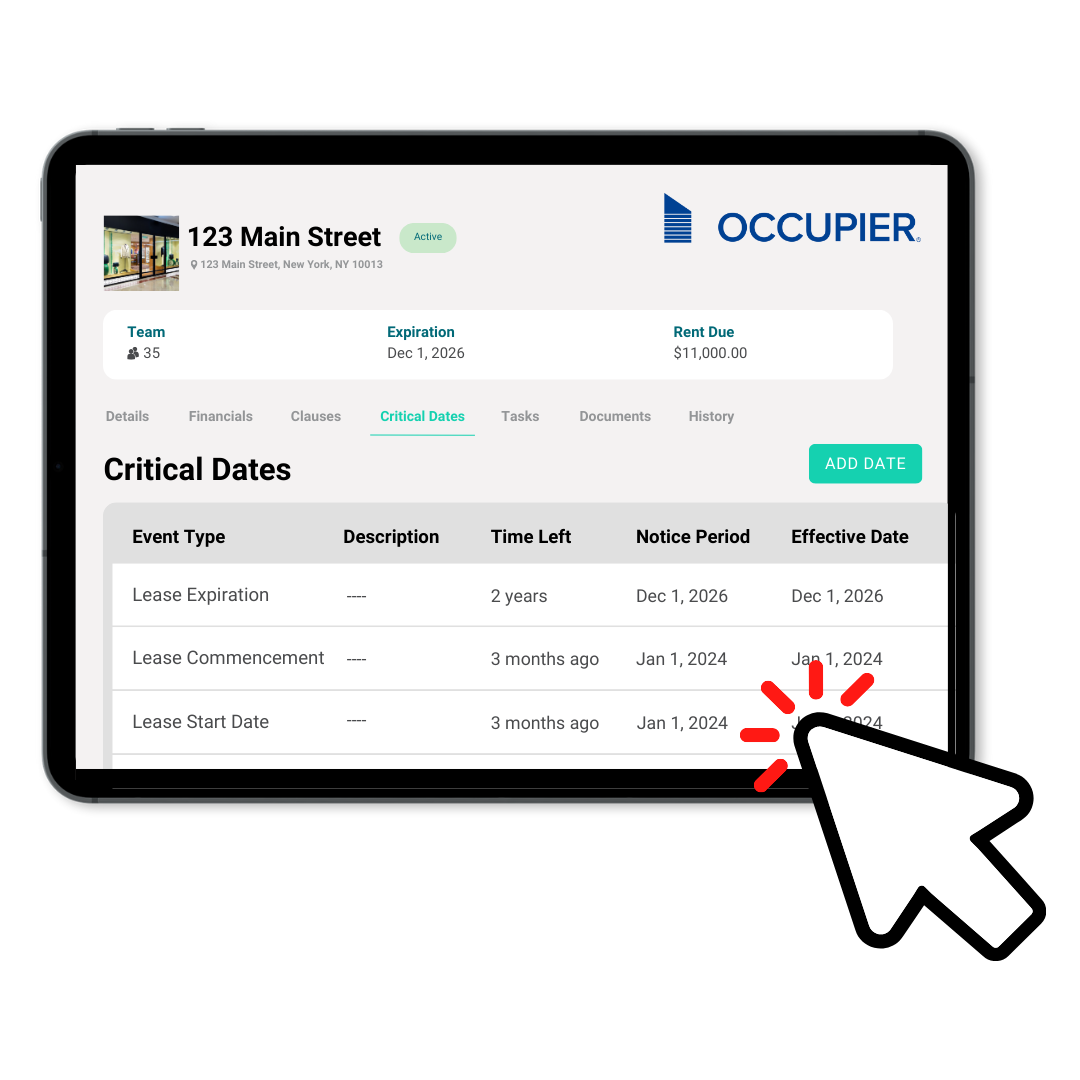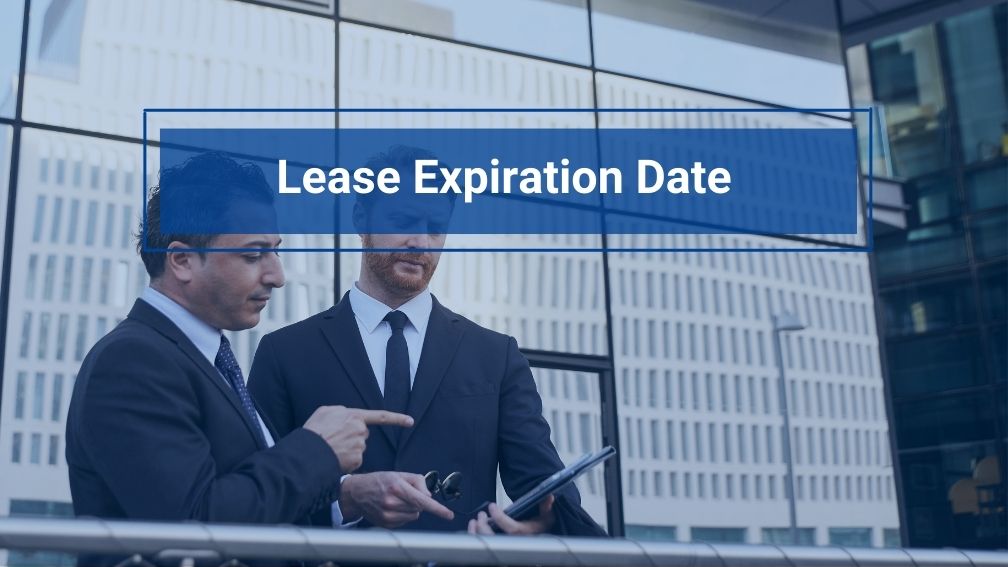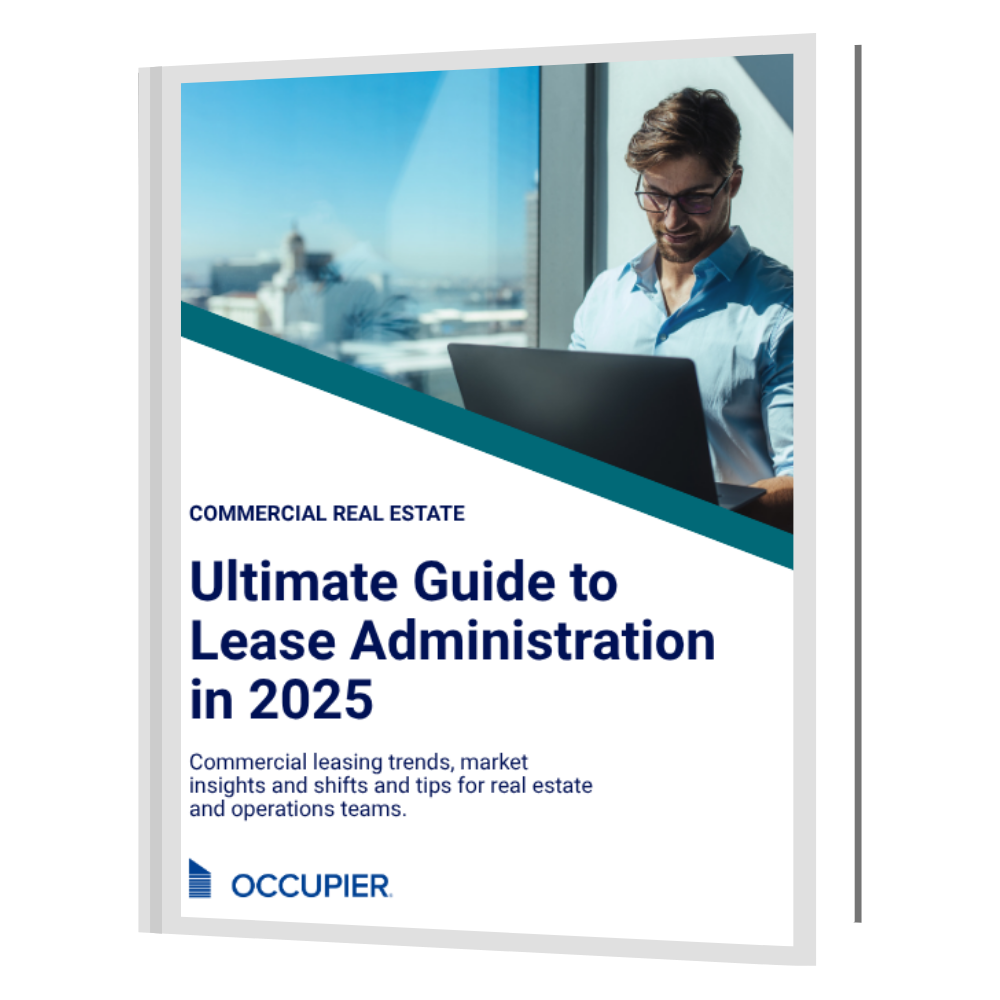Your Lease Expiration Date
Last Updated on July 28, 2025 by
Is your commercial lease coming up on its expiration date? Before packing up or renewing, understand what your lease expiration date really means. Despite the name, your lease expiration date doesn’t always mean the end of your tenancy. Let’s take a closer look at what’s behind this critical lease term.
What is a Lease Expiration Date?
It’s Not Really an Expiration Date
The lease expiration date sounds like an ending, but it’s really just the end of the initial lease term that you agreed to. Most tenants can either renew the lease or continue month-to-month when the initial term ends. So your occupancy isn’t necessarily over when the expiration date hits.
It’s the End of the Initial Lease Term
The expiration date simply marks the end of the initial term you negotiated in your lease agreement – usually 3-5 years. As that predetermined block of time comes to an end, both you and your landlord have decisions to make about what comes next.
Options for Renewal or Month-to-Month
Most commercial leases will spell out your options when the term expires. In many cases, you can continue renting month-to-month or execute a lease renewal for an additional term. There may be specific clauses and notice requirements tied to these options, so review your lease carefully.
Strategies Around the Lease Expiration
Start Planning Early
Don’t wait until the last minute to decide what to do at expiration. Ideally, you’ll want to start strategizing at least 12 months in advance, if not earlier. That extra time helps you assess space needs, budget, and real estate options to build a solid plan:
- How much space will you need – will your company be growing or rightsizing?
- Think about any new equipment, technology, or other investments you may need to make in a new space.
- Crunch the numbers – can you afford increased rental rates, or will you need to trim your real estate costs?
- Vet all of your options by touring potential spaces and understanding the pros and cons of each.
- Weigh the total costs of relocating versus renewing your current lease.
- Don’t leave this critical business decision to the last few weeks. Be proactive and use the year leading up to expiration to create a well-thought-out strategy.
Renegotiate Lease Terms
The end of your lease term represents the ideal opportunity to renegotiate terms that may have become unfavorable. With commercial real estate markets constantly shifting, there may be an advantage to negotiating reduced rental rates, more favorable renewal options, caps on operating expense pass-throughs, tenant improvement allowances, or other more attractive terms. Crunch the numbers on current market rate rents and concessions landlords are offering.
This gives you leverage when asking for improved terms. Revising key clauses in the lease now can save you significant money over an extended renewal period. Don’t be shy about asking for updated lease terms that are more in line with current market norms and that make better financial sense for your company’s bottom line. Your landlord may be highly motivated to renew and keep you in place with competitive terms that work for both parties. Use the pending expiration as a chance to reset lease clauses and improve your standing.
Consider Relocating
Depending on your needs, relocating to a new space may be a smarter move than renewing your lease. There are many factors to weigh when deciding whether to stay or go. Have you significantly outgrown your existing premises and need more elbow room for expansion? Are operational costs at your current building escalating past the point of budgetary comfort? Does the neighborhood no longer meet the needs of your workforce or customer base? Are nearby amenities lacking to attract talent? If you’ve answered yes to any of these questions, it may indeed be prudent to explore relocating your business.
Take time to define your ideal space attributes, tour options that check your boxes, and critically evaluate the costs/benefits of moving. Construction buildouts, moving logistics, internet installation, and other costs need to be calculated. However, the long-term upside of operating in a space optimized to your strategic goals can outweigh the short-term hassles of relocating. Use your upcoming expiration milestone as motivation to thoroughly assess if a new space would best serve your people and your business.
Exercising Renewal or Termination Clauses
To properly execute renewal or termination of your lease at the expiration date, it is crucial to pay very close attention to the notice requirements and other clauses related to these options that are spelled out in your lease paperwork. Do not gloss over the fine print or make assumptions about the terms – read every detail carefully to fully understand your rights and obligations. Most lease expiration dates coincide with the last day of the month, but remember, every lease is different.
Send Proper Notices
There are usually very specific deadlines and timelines stipulated in the lease for giving formal written notice to your landlord of your intent either to renew the lease for an additional term or terminate at the expiration date. Make sure you are crystal clear on these notice requirements and submit the proper notifications in writing by the deadlines stated in your lease, without fail. Missing renewal notice deadlines could mean you are forced to shut down operations or pay holdover rent pricing. Skipping termination notices could result in your lease auto-renewing for a full term you did not intend to stay for. Mark your calendar with all critical dates and set reminders on your phone. Follow up any verbal conversations about renewal with formal letters via registered mail. Do not cut it close and risk losing your space over a technicality like missed notices.
Understand the Fine Print
Don’t gloss over fine print — read all renewal and termination clauses carefully. There are often nuanced but impactful details buried in the clauses that govern your actual rights, obligations, and legal actions around lease expiration. If you have concerns about unclear or contradictory language, consult an attorney. Make sure to clarify things like precisely formulated notice timelines, formulas for calculating renewal rental rates, responsibilities for maintenance and repairs, fees for common area charges, rent abatement, and any other details that seem fuzzy. Be 100% clear on what you are agreeing to by exercising renewal or termination options.
Get Requests in Writing
Should you decide to execute a lease renewal when your term expires, do not rely solely on any verbal agreements, promises, or handshakes with your landlord. Make absolutely certain that any modifications, concessions, new terms, or other agreements related to your renewal are captured unambiguously in writing. Spell it all out point by point in the new lease documentation or in a binding amendment to the existing lease. Do not leave anything open to interpretation. Get every aspect of the renewal deal formally defined in legal contracts before signing off. This protects you and holds all parties accountable to the new agreements made.
Plan for a Smooth Transition
If you ultimately decide not to renew your lease and plan to vacate the premises upon expiration, it is essential to take proactive steps well in advance to ensure the transition out of your current space goes as smoothly and seamlessly as possible. With proper planning, you can prevent major disruptions to your business operations.
Schedule Move-Out and Cleaning
Hire a reputable moving company to handle the logistics of safely transporting your office furniture, equipment, supplies, and other contents from the space. Schedule them for the days immediately following your lease expiration date. Verify you have all necessary equipment, trucks, and movers reserved ahead of time. Be sure to also schedule a thorough professional deep cleaning of the vacant premises to meet any end-of-lease cleaning stipulations in your contract. Leave the space in broom-swept condition or better so that you fully comply with move-out requirements and get your security deposit returned. Coordinate timing with the movers and cleaners so there is no gap between when you turn over keys and vendors access the vacant space.
Forward Mail and Utilities
In advance of vacating your current office, submit a formal change of address to the post office to forward your business mail to the new location. Notify all vendors and clients in writing of the new address. Also, call utility companies and service providers well ahead of time to transfer or cancel services at your old office’s location. Eliminate any lag in mail delivery or utilities that could impact operations. Verify final bills are squared up. Retain any records that may be pertinent for taxes or compliance requirements.
Communicate with Vendors
Develop a comprehensive list of all vendors, partners, agencies, clients and other entities that interface with your company and notify them of the pending relocation. This includes banks, benefit providers, shippers, technology services, etc. Make sure to give ample advance notice about the move so they can update systems and databases with your new location and point of contact. Send follow-up confirmation when the move is complete. Keep communicating until you have assurance that all parties have your new address and information. Don’t let a lack of communication disrupt important relationships or service contracts.
Make the Most of Your Lease Expiration Date
Whether you’re renewing, relocating, or wrapping up a lease, the expiration date is a key moment for strategic decision-making. With Occupier, commercial tenants can streamline lease renewals, track critical dates, and manage every lease term with confidence. Ready to take control of your lease portfolio? Explore Occupier today.

Product Tour
Take a self-guided tour and see how the fastest-growing commercial tenants leverage Occupier for lease management & lease accounting.
FAQs
What are my options when my lease expires?
You typically have the option to continue month-to-month, sign a lease renewal, or vacate the premises. Review your lease to understand the specific terms and notice requirements.
Can I negotiate better lease terms upon expiration?
Yes, the end of your lease term is the ideal time to negotiate improved terms, especially if market rents have decreased or your needs have changed.
What happens if I stay past my expiration date?
You would most likely shift to a month-to-month tenancy at that point. However, remaining past your expiration without consent from the landlord could potentially result in penalties or eviction.
How much notice do I need to give if I plan to leave?
Check your lease – the notice period for terminating at expiration typically ranges from 30-90 days and is usually spelled out in the termination clause.
Can I renew my lease prior to the expiration date?
Yes, most landlords will allow you to renew early in order to continue your occupancy without disruption. You’ll just need to notify the landlord per the renewal notice requirements outlined in your existing lease. This will create a new lease commencement date and either a new lease or an amended lease document.

